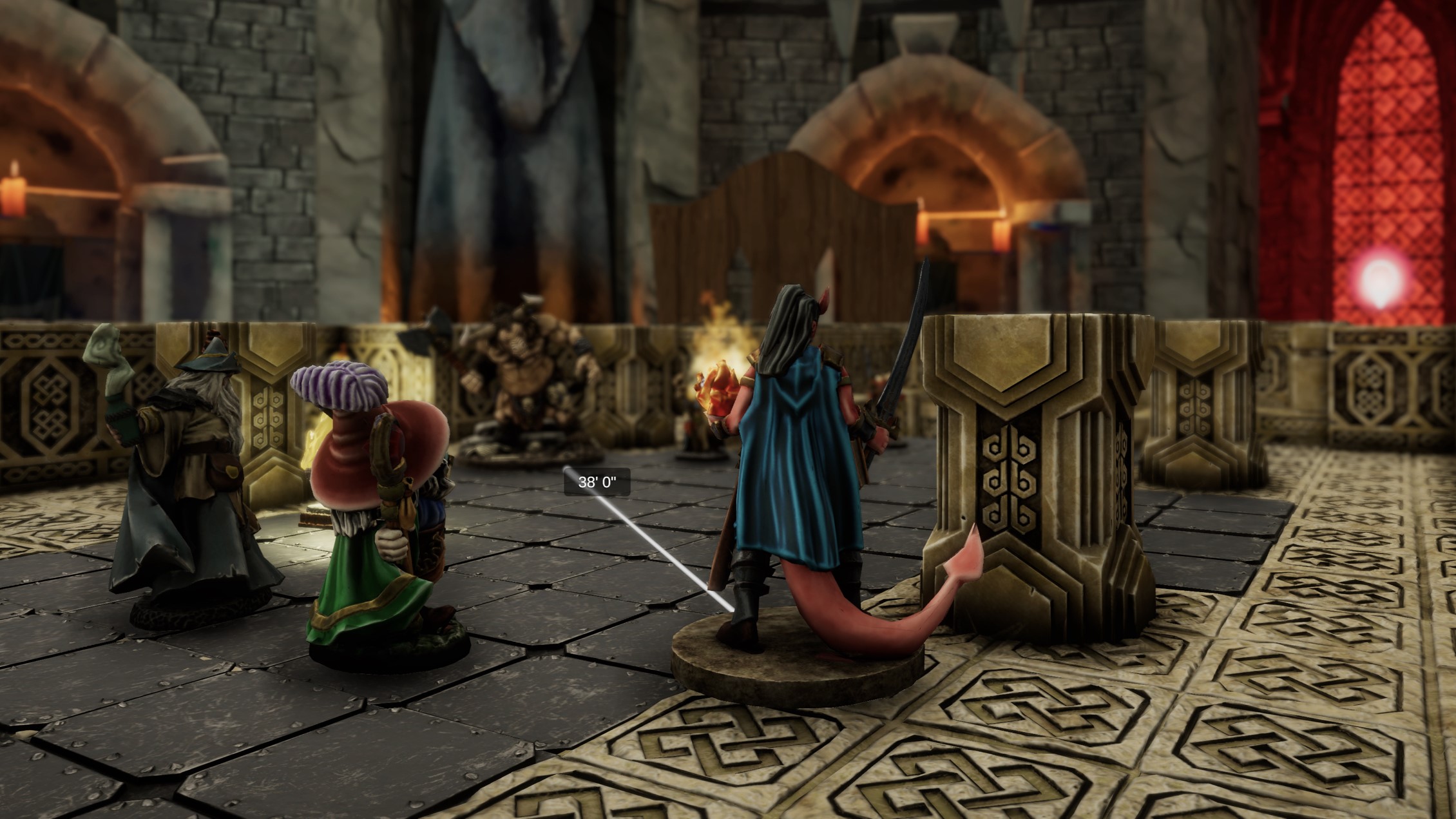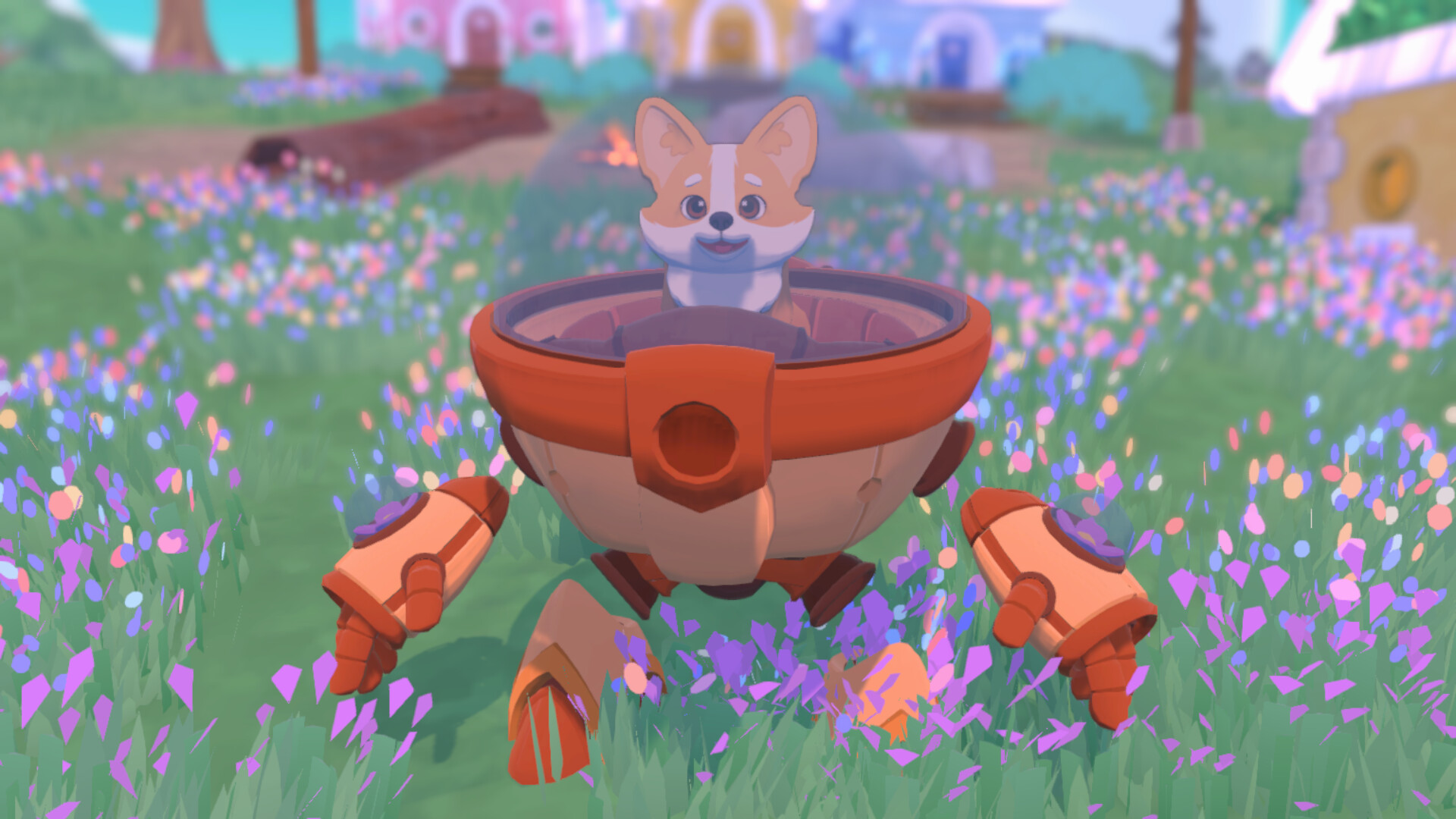As someone who’s been playing tabletop RPGs entirely online ever since the first pandemic lockdown, I’m fascinated by the growth of new platforms and technologies to support that style of play. Digital game aids (such as D&D Beyond) and shared virtual table spaces (such as Roll20) have been around for a while now, but increasingly there’s a push towards more fully immersive and visually impressive experiences. As Wizards of the Coast works on its own 3D virtual tabletop, other developers are pioneering and pushing the technology forwards in their own ways. Enter Mirrorscape.
Originally released for mobile as an augmented reality-driven experience, Mirrorscape allows you to make full 3D tabletop scenarios with a library of miniatures and assets—and it’s now on its way to PC, with an in-development build available to try on itch.io, and an upcoming Steam Early Access release. The core idea isn’t a new one—it’s a similar approach to something like Tabletop Simulator or TaleSpire—but there’s a level of craft to Mirrorscape that really sets it apart.
One of the things that struck me when I first saw Mirrorscape was that I recognised the pieces on the board. I’d seen that little lantern-wielding halfling before, and even the dungeon he was standing in gave me déjà vu. There’s a good reason for that: a large portion of the items currently available on the platform are actually 3D scans of physical miniatures and terrain sets. Anyone who’s ever picked up some Reaper miniatures for their D&D game, or adventured through a Dwarven Forge modular dungeon, will feel right at home—and many of the other pieces are adapted from STLs (sculpts for 3D printing) from popular creators like Fat Dragon.
It’s a simple choice but a very clever one. Even if you don’t recognise any of the pieces, you’ll find they still evoke a very authentic tabletop feel. A huge part of what makes 3D virtual tabletops work is a sense of tactility—these designs that were created for physical play in the first place really help to reinforce that. And, brilliantly, Mirrorscape has a partnership with Hero Forge too. This popular online tool lets you create your own custom miniature sculpts without any special skills or knowledge, and any that you buy can be imported directly into Mirrorscape.
Creating your own scenarios just involves dragging and dropping items onto the table. Dungeon tiles and other modular terrain pieces click together neatly on a grid, and a clever terrain height tool lets you reveal an area to your party in layers—for example, travelling down through the floors of a dungeon, or removing the roof of a building to reveal the furnished interior within. A very charming touch is that once you’ve made a scene, you or your players can actually explore it in first-person. You just select the miniature you want to be your POV character, and with a click of a button you’re seeing the tabletop from their perspective, and you can even move around as them, like you’re in an FPS.
(Image credit: Mirrorscape, Inc)
It’s a lovely contrast, moving from the top-down perspective so evocative of real physical play, to a first-person view that suddenly makes your little builds and monsters seem grand and daunting. I’m not sure how practical it would be to play a whole session from that perspective, but I can imagine just diving into it for big reveals being a really atmospheric experience.
Of course, even straightforward as Mirrorscape is in concept, setting up entire environments for your party is a lot of work. It’s quicker than building and painting miniatures, but if you’re used to just playing with tokens on a whiteboard or simple 2D virtual interfaces, you may find this a lot of extra prep for the GM. Right now, that’s not helped by an interface that still feels too derived from mobile to be intuitive with a mouse and keyboard, though given the project’s still a work-in-progress on PC you can expect the controls to be iterated on from here. The plan is also for a Mirrorscape community site to allow users to create and share maps and creations—so lazy GMs should be able to download fully made scenarios and skip a lot of the hard work, either running them as-is or just tweaking to suit their game.
I’m sure some readers will already be preparing their “The only way to play TTRPGs is round a real table!” comments, but for those who like exploring more technology-driven ways to play, Mirrorscape is a really compelling option—and you can try it for yourself for free today or wishlist it on Steam ahead of the full Early Access release.










